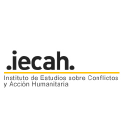Among the eligible costs, we can distinguish between implementation costs and remuneration costs.
Implementation Costs of the Action, are directly linked to the implementation of the Action, and would not have been incurred if the Action had not taken place; in this way, they can be directly attributed to it.
The implementation costs are:
Personnel costs
The personnel costs that can be considered eligible, are the costs related to the staff directly assigned to the implementation of the Action.
These type of costs may include:
Conditions: these costs must be in line with the partner's usual policy on remuneration and shall be supported by adequate evidence regarding the time worked by the staff; this could be done, for example, through a time-recording system that is a reliable method of apportionment or through an employment contract stipulating the precise assignment to the Action.
Conditions: such payments should arise from a statutory obligation under the applicable labour law and should be charged to the Action only for the portion that corresponds to the share of the total working time under the employment contract spent on the Action.
Conditions: Firstly, the partner should be able to demonstrate a direct link of these costs to the Action, furthermore these costs have to be in line with its usual practices on travel and in the case of monitoring missions covering several projects, travel and related subsistence allowances will be taken into account only for the portion that corresponds to the share of the total mission time spent on the Action.
Please notice that the costs of staff assigned to the Action is not a contribution in kind and may be considered as co-financing in the Budget when paid for by the partner or the Sub-delegatees.
Equipment and Goods related costs
Equipment refer to durable items that can be used multiple times over their estimated economic useful lifespan. They comprise both support equipment, intended to assist the implementation of the Action, and operational equipment, intended for the direct benefit of the beneficiaries.
The partner can charge to the Action both new and second-hand equipment under one of the following options:
Depreciation is used if the partner has purchased the equipment during the Action but wishes to use the equipment after the Action, or if it has purchased the equipment using its own funds.
Conditions: the costs must be recorded in the accounting statements of the partner and the equipment must be written off in accordance with its usual accounting practice, finally, for the purposes of the Action, should be taken into account only the portion of the equipment's depreciation costs corresponding to the rate of actual use
Rental costs of equipment are eligible.
Conditions: the partner must take into account only the portion of the equipment's rental costs corresponding to the rate of actual use for the purposes of the Action and the adequate procurement procedures have to be respected.
Lease costs of equipment are eligible.
Conditions: these costs must be exclusive of any finance fee and for the purposes of the Action, the partner can take into account only the portion of the equipment's lease costs, corresponding to the rate of actual use.
Fully charged costs of equipment are eligible.
Conditions: the partner must respect the procurement eligibility conditions and, out of Multi - donor actions, the rules about their disposal at the end of the action.
GOODS COSTS
Goods refer to items intended for direct consumption or use by the beneficiaries. The costs are eligible when the good is directly assigned to the Action. In this case, the partner can also charge the costs related to transport, storage and distribution, provided that it has respected the procurement conditions and, out of Multi-donor Actions, the rules about goods disposal at the end of the action.
Information about the major goods to be used for the Action have to be provided in the Section 6.3 of the Single Form
Shared costs
Costs attributable to the functioning of the field offices necessary to implement the Action, are eligible in proportion to the amount of activity directly attributable to the Action.
Taxes, duties and charges, including VAT costs
These costs can be consideerd eligibile only provided the partner cannot recover them.
COSTS OF FUNDING TO CONTRACTORS AND IMPLEMENTING PARTNERS
The costs entailed by Contractors and Implementing Partners can be considered eligible as long as they are incurred for the implementation of the Action described in Single Form. On the basis of this, we can consider as eligible those costs incurred by Contractors and Implementing Partners and related to:
-
works and services (transport, storage and distributing, rent of equipment, etc.) directly attributable to the Action as well
Please note that, in any case, the partner remains fully responsible towards the Commission for all funds unduly paid to Contractors and Implementing Partners and that it shall take all necessary measures to recover funds unduly paid or incorrectly used by them.
N.B. In case of consortium, if reasonable,the coordination costs can be acceptable.
COSTS INCURRED BY THE SUB-DELEGATEES
The costs incurred by the Sub-delegatees can be considered as eligible costs Conditions
These costs must respect the same conditions to be respected by the costs incurred by the partner.
In any case, the financial responsibility remains of the partner that signed the Agreement, which have the full financial responsibility towards the Commission for all funds unduly paid to Sub-delegatees. For this reason, the partner is asked to take all necessary measures to recover funds unduly paid or incorrectly used by Sub-delegatees.
In Multi-Donor Actions, ECHO systematically checks the costs incurred by the UN Organisation against the eligibility rules. Nevertheless, by virtue of the notional approach, which still applies under the 2014 General Conditions, when assessing the eligibility of costs under Multi-Donor Actions, it is sufficient for ECHO to ascertain that the level of eligible expenditure under EC rules is at least equal to the amount of ECHO’s contribution specified in the Delegation Agreement, and that the amount contributed by other donors is sufficient to pay for those aspects of a larger Multi-Donor Action which, for whatever reason, cannot be funded by ECHO.
Remuneration costs of the Action are those costs which are not directly linked to the implementation of the Action and that cannot be attributed directly to it.
Unless otherwise specified in the Delegation Agreement, remuneration costs shall be declared on the basis of a flat rate of 7% of the total eligible implementation costs and do not have to be supported by accounting documents. In any case, the flat rate for remuneration costs may not exceed the flat rate used in comparable actions.





